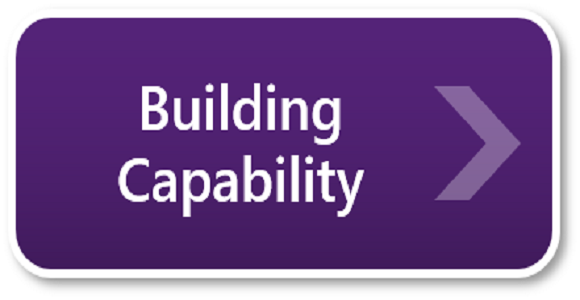
Strategy execution capability building: Skills for strategy execution / Skills for goal execution
Real time capability building is about precise and contextual application of skills and knowledge to the present wants of the job. Being agile and constantly working on building aligned and precise skills & knowledge across the organisation is the need of the hour considering the ever-changing landscape of business and the specific needs of people.
Present learning methodologies Vs real time
The capabilities that companies need most have evolved, but methods of building those skills have not. Although traditional approaches to learning have made some impact on productivity, the impact has arguably reached a plateau.
For instance, most interventions are like “Learning-by-studying” where you are to understand the principles and theories, which technically is an accumulated knowledge of previous occurrences. Whereas real time methods could be like “Learning-by-using” where you continuously apply knowledge and skills to better outcomes, which is unique to the requirement at hand and constantly changing. For example – In the process of on-boarding a vendor in manufacturing, ability to negotiate is critical. Negotiating skills as a theory may be needed, but application differs as shown in the picture below:
Thus, in rapidly changing environments, knowing what customers want has to be a repetitive activity. Building agile methods to acquiring skills and building capability real-time will have a positive impact on productivity in organisations.
If we were to develop real-time capability for the organisation /department / Individual it is imperative to understand the circumstances holistically. We will need to understand output clearly to determine the input.
Challenges to capability building
A recent global survey result published by McKinsey on building organisation capability shows the biggest challenges faced by organisations.
Interpretation of this report seems to suggest that these challenges are interrelated. If we were to look at real-time capability building, we would need to actuate most of these factors. For example; Objectivity, buy-ins, alignment, accountability, performance and skill development.
Why should we look at real-time capability building?
Changing business scenarios:
The truth we have to face is the ever increasing demand for high quality reliable products & services required to be delivered within a short span of time at acceptable. This landscape is ever changing and so is the capability to cope with these changes. Your present capability may not be relevant tomorrow.
Holistic and aligned to strategy:
Most organisation leaders know that their organisation should be aligned. They know their organizational capabilities in relation to people, processes and systems should all be arranged to support the organisations strategy.
The challenge is that leaders tend to focus on one of these areas, sometimes based on their comfort areas, but what really matters for performance is how they all fit together and in real-time.
Customer wants:
Although organisation capability must aid strategy accomplishment, it has another important prerequisite, that of being customer centric and satisfy customer needs. The needs of our customers are constantly changing and so should the capability of the organisation to satisfy them.
Frequent enabling:
Dynamic business scenario and changing customer needs warrants more frequent reviews and capability enablement. Organisations strategies go through constant changes so should the effort to align and enable the capabilities quickly and in real-time.
Engagement:
Frequent interaction and real time capability building activity will bring in objectivity and relevance to everyone’s work. Engaged employees foster collaborative working.







